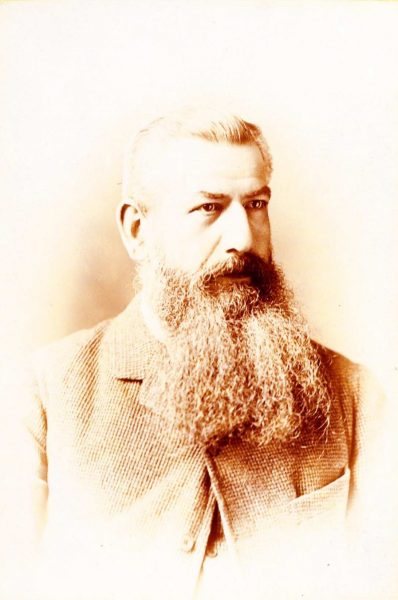Businessman, celebrated botanist, horticulturalist, entomologist, and ornithologist, Philip Crowley was a versatile polymath. Born in Alton, Hampshire on the 28 August 1837, his life spanned the Victorian era. He rose to be elected to some of London’s premier scientific associations, including the Linnean, Zoological, and Royal Entomological Societies in addition to his election as a chairman of the Royal Horticultural Society. He helped found the British Ornithologists’ Club and was its Vice Chairman at the time of his death.

The Crowley family had been involved in the brewing industry in Croydon, and later Alton in Hampshire, since the 17th century. The brewing business brought the family significant wealth and Philip was privately educated before later entering the family business. He had a lifelong interest in nature generally and a keen eye for networking opportunities. Already an avid egg collector, he was elected to the British Ornithologists Union on 17 May 1882, at the age of 44, the same day as several other pivotal figures in Victorian ornithology including Eugene Oates, Henry Slater, and Charles Swinhoe. Six years earlier, his older brother, Alfred (1824–1876), also an egg collector, had tragically died at the age of 51 and Philip incorporated his brother’s egg collection into his own. Both Alfred and Philip had been active members of the Croydon Microscopical Club since its inception in 1870 and Philip gained his first experience in club administration there, as a long-standing committee member. It was not until 1887, when Crowley purchased the extraordinary and unrivalled egg collection of Canon Henry Baker Tristram (1822–1906) for £1000 (around £95,000 in current prices) that his collection truly became one of the most important ever assembled. Canon Tristram was a founder, and original member of the British Ornithologists’ Union, and his egg collection held some of the rarest and most historically important eggs found in any 19th century collection. Reputed to hold examples of over 4000 species, it was the largest and most important collection in private hands. The acquisition of Tristram’s eggs elevated Crowley’s collection to legendary status and he continued to acquire specimens of international importance right up to his death. Indeed, the first talk he gave for the BOC was on the newly discovered nest and egg of the Raggiana Bird-of- Paradise Paradisaea raggiana.
He was reputed to be always kindly, genial, and impartial. When Crowley died on 20 December 1900 at the age of 63, his bequest of eggs to the British Museum was one of the most important in its history. The terms of Crowley’s will allowed the museum to select four clutches of eggs from any locality not previously represented in the Museum, as well as any eggs of historical interest. Dr. Richard Bowdler Sharpe (1847–1909) was still the preeminent ornithologist at the British Museum as well as one of the other founders of the BOC. The prominent naturalist and egg collector, Eugene William Oates (1845-–1911) had recently retired from his role as an engineer in Burma and was engaged in compiling the first catalogue of eggs in the British Museum. Together, they selected nearly 7000 clutches from Crowley’s collection. It enriched the British Museum’s (later the Natural History Museum) egg-collection to an extraordinary degree and was arguably the most important addition to the museum’s egg collection of the early 20th century. The remaining eggs were afterwards sold at Stevens’ Auction Room in London during the summer of 1902, and many are now to be found in major collections across the globe. Crowley did not, like some of his fellow founders, leave a legacy of published work but he did leave ornithology one of the most important research collections of data-rich birds’ eggs ever assembled – a unique resource that continues to shed new light on birds globally to this day.
Author Information
Douglas G. D. Russell
Senior Curator: Birds’ Eggs & Nests,
Natural History Museum, Bird Group
Akeman Street, TRING, United Kingdom, HP23 6AP
